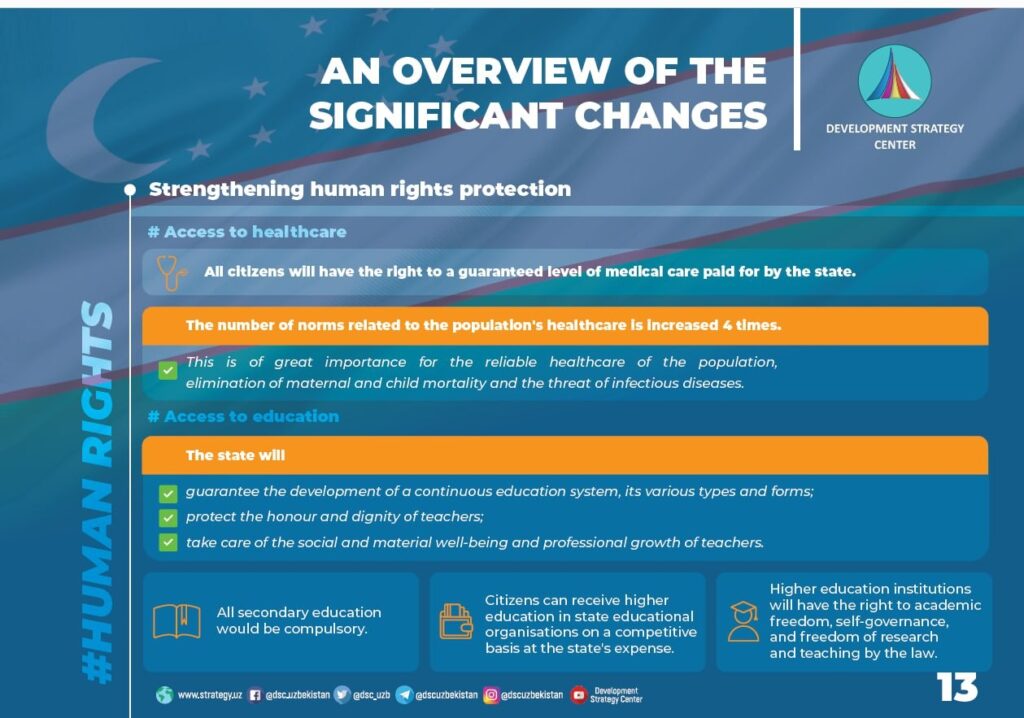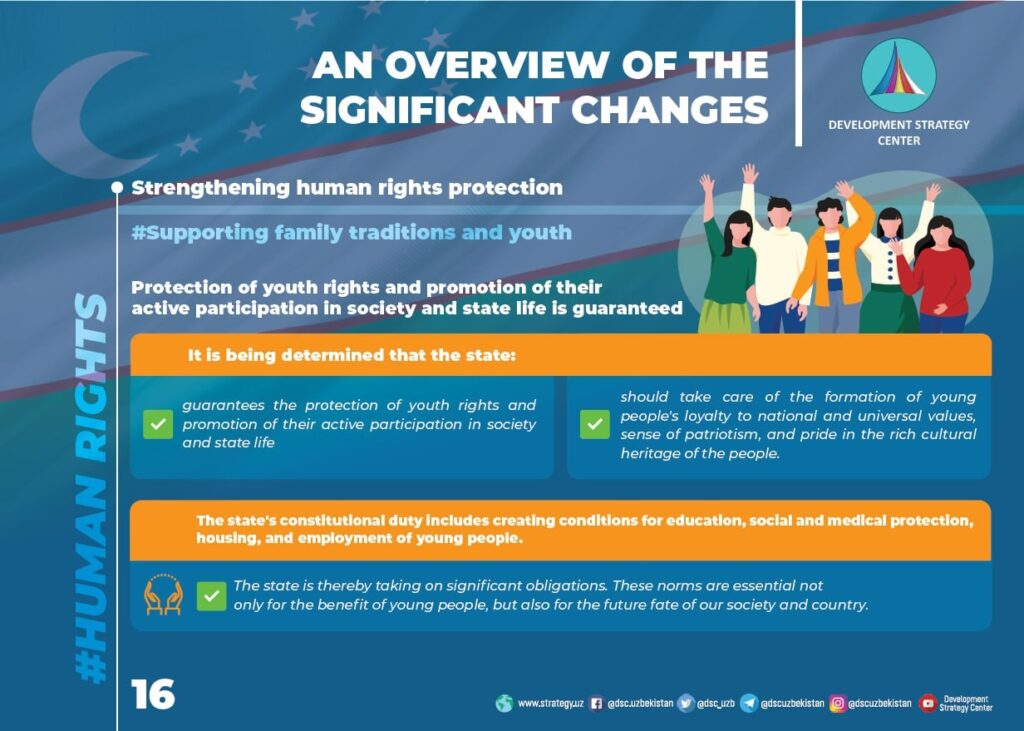Eldor TULYAKOV,
The Executive Director,
Development Strategy Center of Uzbekistan
Over the last few years in Uzbekistan, as in developed countries, significant reforms have been carried out within the framework of the Strategy of Actions and its logical continuation, the Development Strategy, to progressively improve the continuous education system, provide quality education, and train qualified personnel.

In the last 6 years, the expenditures from the state budget for these reforms increased 4.3 times. The number of preschool education institutions increased from 5,211 in 2016 to 19,316 by 2021. The number of schools increased from 9,719 to 10,289, the 11-year compulsory school education was restored, the workload of school teachers was optimized, and forced labour was abolished. The monthly salary of personnel in the education sphere has been increased by almost 4 times, the number of HEIs has been increased from 70 to 191, and the two-level system of post-graduate education -primary doctorate (PhD) and doctorate (Doctor of Science) – has been introduced.
As a result of reforms in education, preschool education coverage increased from 27.7% to 67%. The share of qualified teachers with higher education in schools rose from 81.8% to 87.8%, and the range of youth with higher education rose from 9% to 38%.
To consistently continue reforms in the field, within the framework of the Development Strategy until 2026, there is foreseen to raise the preschool education coverage from the current 67% to 80%, to establish more than 7 thousand new non-governmental preschool education institutions, create additional public places for 1.2 million pupils education system. It is also expected to increase higher education coverage to 50% and the number of non-governmental HEIs to at least 50.
To further strengthen and ensure the sustainability of the reforms mentioned above, it is necessary to enhance the opportunities for young people to receive continuous education in the constitutional legislation.

Taking this into account, for the first time, the updated Constitution is being complemented with such additions as the introduction of the state guarantee in the field of education and upbringing of children of kindergarten age, compulsory secondary education provided by the state free of charge, providing citizens with higher education at the expense of the state in public HEIs on a competitive basis.
Specific mechanisms aimed at expanding the opportunities for quality education of children with disabilities are provided as special obligations of the state in the new Constitution. Thus, a social norm is being introduced on providing inclusive education and training for children with special educational needs in educational institutions.
To implement the above reforms, paying attention to the quality of education and continuously increasing the attractiveness of working in this field is necessary. Because the development of the nation and the people, increasing its intellectual potential, depends on the activity of teachers. The teacher is essential in conveying the recesses of science, spiritual and cultural heritage to young people. Therefore, it is necessary to create the conditions for teachers to fully unlock their potential and provide them with social, legal, and material support.

Therefore, a separate article on the teacher’s status in society is included in the new Constitution. In Uzbekistan, the recognition of the teacher’s work as the basis for the development of society and the state, the formation and upbringing of a healthy, mature generation, and the preservation and enrichment of the nation’s spiritual and cultural potential is being strengthened. It is assumed that the state will protect the honour and dignity of teachers and take care of their social and material well-being and professional growth. This norm creates an opportunity to strengthen the social status of more than 685,000 pedagogues working in the country, strengthen their state support, and ensure their professional growth.
The bottom line is that it will be challenging to ensure further economic growth without improving the quality of human capital. Therefore, directing the necessary efforts and resources to increase the quality of education and training qualified personnel is becoming today’s and tomorrow’s priority task. For this reason, as each country strives to build a free and prosperous society, it enshrines its noble goals and duties on this path in its Constitution.
Eldor TULYAKOV,
Executive Director,
Development Strategy Center of Uzbekistan
















